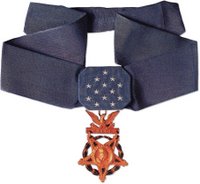
Having
finished reading the Newbery Medal winners in August of '09, I'm continuing with the books which have been awarded the Andrew Carnegie Medal - the British equivalent of the Newbery Medal, now awarded by the Chartered Institute of Library and Information Professionals (
CILIP).
The medal was first awarded in 1937, for the best children's book of 1936, but there have been three years when no book was considered suitable, so there are only 72 winners thus far. In addition to the gold medal, the winner receives £500 worth of books to donate to a library of his/her/their choice.
Here's the list. (Dates marked in
red indicate the six books I had already read before last year; dates in
purple indicate the ones I've read since.)
1936:
Pigeon Post, by Arthur Ransome
1937:
The Family from One End Street, by Eve Garnett
1938:
The Circus is Coming (aka
Circus Shoes), by Noel Streatfield
1939:
Radium Woman, by Eleanor Doorly
1940:
Visitors from London, by Kitty Barne
1941:
We Couldn't Leave Dinah, by Mary Treadgold
1942:
The Little Grey Men, by 'BB' (D J Watkins-Pitchford)
1943: Prize withheld as no book was considered suitable
1944:
The Wind on the Moon, by Eric Linklater
1945: Prize withheld as no book was considered suitable
1946:
The Little White Horse, by Elizabeth Goudge
1947:
Collected Stories for Children, Walter De La Mare
1948:
Sea Change, by Richard Armstrong
1949:
The Story of Your Home, by Agnes Allen
1950:
The Lark on the Wing, by Elfrida Vipont
1951:
The Wool-pack, by Cynthia Harnett
1952:
The Borrowers, by Mary Norton
1953:
A Valley Grows Up, by Edward Osmond
1954:
Knight Crusader, by Ronald Welch (Felton Ronald Oliver)
1955:
The Little Bookroom, by Eleanor Farjeon
1956:
The Last Battle, by C S Lewis
1957:
A Grass Rope, by William Mayne
1958:
Tom's Midnight Garden, by Philipa Pearce
1959:
The Lantern Bearers, by Rosemary Sutcliff
1960:
The Making of Man, by Dr I W Cornwall
1961:
A Stranger at Green Knowe, by Lucy M Boston
1962:
The Twelve and the Genii, by Pauline Clarke
1963:
Time of Trial, by Hester Burton
1964:
Nordy Bank, by Sheena Porter
1965:
The Grange at High Force, by Philip Turner
1966: Prize withheld as no book was considered suitable
1967:
The Owl Service, by Alan Garner
1968:
The Moon in the Cloud, by Rosemary Harris
1969:
The Edge of the Cloud, by Kathleen Peyton
1970:
The God Beneath the Sea, by Leon Garfield and Edward Blishen
1971:
Josh, by Ivan Southall
1972:
Watership Down, by Richard Adams
1973:
The Ghost of Thomas Kempe, by Penelope Lively
1974:
The Stronghold, by Mollie Hunter
1975:
The Machine Gunners, by Robert Westall
1976:
Thunder and Lightnings, by Jan Mark
1977:
The Turbulent Term of Tyke Tiler, by Gene Kemp
1978:
The Exeter Blitz, by David Rees
1979:
Tulku, by Peter Dickinson
1980:
City of Gold and Other Stories from the Old Testament, by Peter Dickinson
1981:
The Scarecrows, by Robert Westall
1982:
The Haunting, by Margaret Mahy
1983:
Handles, by Jan Mark
1984:
The Changeover, by Margaret Mahy
1985:
Storm, by Kevin Crossley-Holland
1986:
Granny was a Buffer Girl, by Berlie Doherty
1987:
The Ghost Drum, by Susan Price
1988:
A Pack of Lies, by Geraldine McCaughrean
1989:
Goggle-eyes, by Anne Fine
1990:
Wolf, by Gillian Cross
1991:
Dear Nobody, by Berlie Doherty
1992:
Flour Babies, by Anne Fine
1993:
Stone Cold, by Robert Swindells
1994:
Whispers in the Graveyard, by Theresa Breslin
1995:
Northern Lights, by Philip Pullman
*1996:
Junk, by Melvin Burgess
1997:
River Boy, by Tim Bowler
1998:
Skellig, by David Almond
1999:
Postcards From No Man's Land, by Aidan Chambers
2000:
The Other Side of Truth, by Beverley Naidoo
2001:
The Amazing Maurice and his Educated Rodents, by Terry Pratchett
2002:
Ruby Holler, by Sharon Creech
2003:
A Gathering Light, by Jennifer Donnelly
**2004:
Millions, by Frank Cottrell Boyce
2005:
Tamar, by Mal Peet
2006:
***2007:
Just in Case, by Meg Rosoff
2008:
Here Lies Arthur, by Philip Reeve
2009:
Bog Child, by Siobhan Dowd
2010:
The Graveyard Book, by Neil Gaiman
2011:
Monsters of Men, by Patrick Ness
So the count now is 52 down, 20 to go. The ILLs are still coming in - my thanks to the Connecticut State Library Library Service Centre, Middletown CT, and the Babcock Library, Ashford CT.
* His Dark Materials, Book 1. Published in the US as The Golden Compass.
** Published in the US as A Northern Light.
*** Up through the award for 2005, the winners were referred to by the year of publication. Beginning in 2007, the winners were referred to by the year the award was given, as with the American Newbery Medal. Thus there is no "2006 winner" of the Carnegie Medal. Tamar, the 2005 winner, was published in '05, and received the medal in '06. Just in Case, the 2007 winner, was published in '06 and received the award in '07.
 Citation: In Italy, on l0th July, 1944, a Company of the 5th Mahratta Light Infantry attacked a position strongly defended by the enemy.
Citation: In Italy, on l0th July, 1944, a Company of the 5th Mahratta Light Infantry attacked a position strongly defended by the enemy.




















